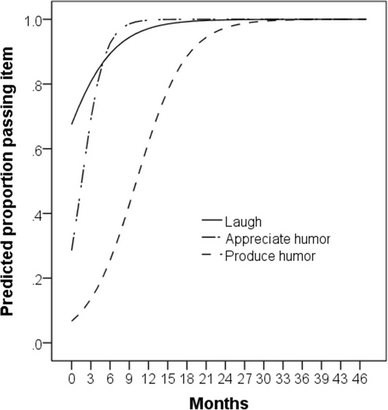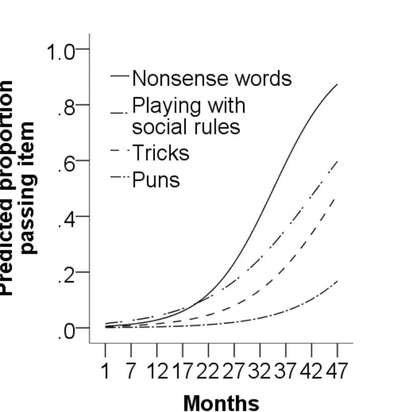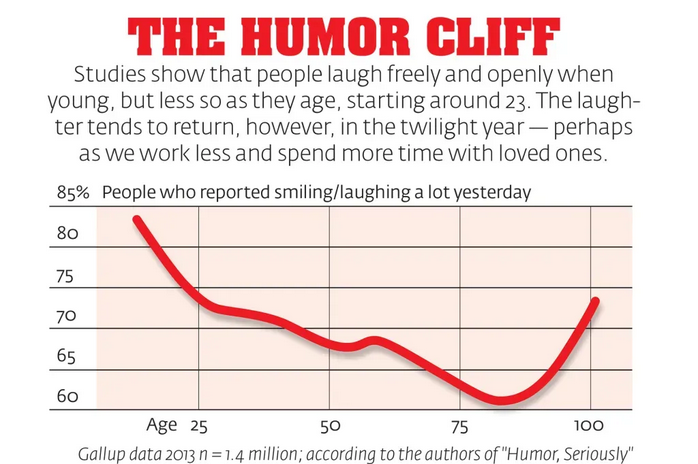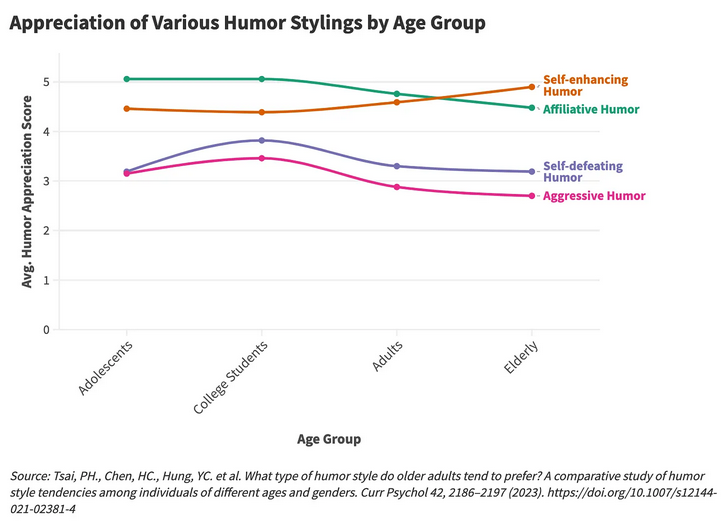Ted Gioia cross-posted an article from Daniel Parris that answers the eternal question “when do humans develop a sense of humour?”
… a large body of academic research examines the intersection of humor, aging, and cultural mores. So today, we’ll explore how our sense of humor forms and transforms with age, and the physiological factors driving our comedic sensibilities.
How Does Our Sense of Humor Change Over Time?
We are born humorless little poop machines. We can’t make funny voices, we can’t do bits, and we can’t engage in wordplay — we simply eat, sleep, poop, cry, and poop again. And then, amidst this onslaught of poop, a sense of humor begins to emerge.
The Early Humor Survey (EHS) is a standardized questionnaire designed to assess a child’s humor-processing abilities in the first four years of life. EHS survey data (which is collected from parents) reveals that our sense of humor begins emerging in infancy, typically around the four-month mark. During this period, babies respond to simple stimuli with laughter and begin producing humor.
Even more striking is how humor development differs by task, as comprehension and appreciation of nonsense, puns, and trickery are all learned at varying rates.
Once we exit adolescence, comedic interactions begin to wane, and we laugh less often.
A 2013 Gallup survey documenting the frequency of humorous interactions suggests the existence of a “humor cliff” as we age — each year, we laugh a little less than the previous one. Humor fades until we’re 80, at which point we chuckle a bit more (what a relief).
While captivating, this visualization is also misleading. Popular interpretations of this data suggest that as people mature, their appreciation for humor declines, as if this trait were a single stock trending up or down. Instead, a person’s comedic sensibilities are defined by an assortment of preferences that remain fluid throughout our lives.
A substantial body of research examines how comedic taste varies with age, exploring our reactions to different humor styles at various life stages. One such study published in Current Psychology presented respondents with a series of humorous statements and then assessed each subject’s affinity for four distinct joke types:
- Self-enhancing Humor: finding comedy in everyday situations, often by humorously targeting oneself in a good-natured way.
- Affiliative Humor: using humor to strengthen social bonds and enhance relationships by sharing jokes and amusing stories that make others laugh while avoiding negativity.
- Self-defeating Humor: Involves individuals making jokes at their own expense to gain approval or avoid conflict, sometimes undermining their self-esteem.
- Aggressive Humor: Making jokes or remarks that ridicule, belittle, or demean others, often intended to assert dominance or express hostility.
Ultimately, the study found that with age, people appreciate self-enhancing humor more, and they value affiliative, self-defeating, and aggressive stylings less.
A similar study of 4,200 German participants found that we increasingly prefer incongruity resolution as we age, an approach marked by unexpected or contradictory elements that lead to a comedic surprise. In joke format, this genre includes a setup pointing toward one outcome, with a punchline that delivers a surprising twist, such as “I just flew in today, and boy, are my arms tired!”







